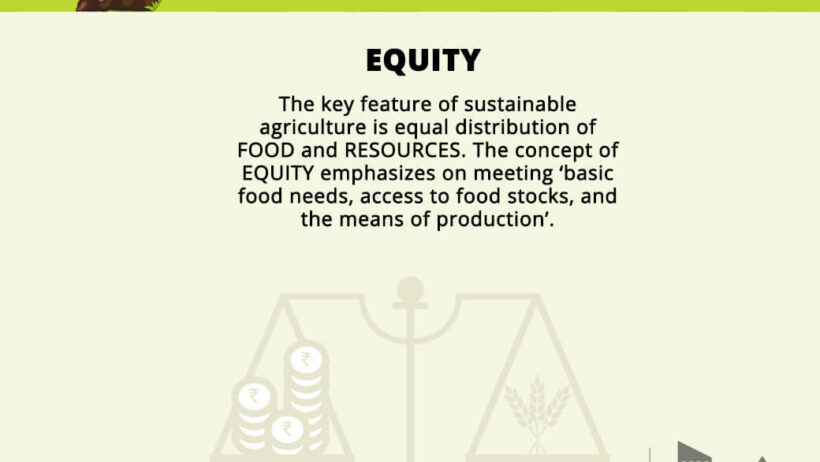The Climate Friendly Farming Project represents an innovative approach to agriculture that aims to reconcile farming with environmental stewardship. As the planet grapples with the growing impacts of climate change, it becomes increasingly paramount to reassess traditional agricultural practices. The essence of this initiative is to cultivate a more sustainable farming paradigm, ensuring a secure food supply while minimizing ecological footprints. This project provides a multifaceted framework that invites farmers to engage proactively with environmental sustainability while enhancing the resilience of their agricultural systems.
One of the foremost purposes of the Climate Friendly Farming Project is education. Farmers participating in the project gain access to a plethora of resources that illuminate sustainable farming techniques. Through workshops, webinars, and field days, farmers learn about practices such as crop rotation, cover cropping, and integrated pest management—practices that not only boost productivity but concurrently enhance soil health. The integration of these educational resources fosters informed decision-making, enabling farmers to make choices that align their agronomic practices with environmental objectives.
Another critical element of the project is its emphasis on innovation and technology advancement. The modern agricultural landscape is rife with technological possibilities that can drastically improve sustainability. Utilization of climate-smart technologies, such as precision agriculture tools, allows farmers to optimize input usage. This ensures that fertilizers and water are applied judiciously, thereby mitigating runoff and reducing waste. Moreover, the introduction of carbon-efficient practices, including no-till farming, helps sequester carbon in the soil, potentially turning farms into carbon sinks rather than sources.
Financial incentives also play a significant role in the Climate Friendly Farming Project. Recognizing that transitioning to sustainable practices often requires upfront investment, the project offers various funding opportunities. Grants, subsidies, and financial assistance programs are designed to alleviate the initial burden of implementing eco-friendly practices. Additionally, these financial support mechanisms can enhance farmers’ competitiveness in an increasingly eco-conscious marketplace by enabling them to produce organic or sustainably sourced products that command higher prices.
Moreover, engagement with local communities is crucial. This project serves as a platform for farmers to share their experiences while learning from one another. Community-based initiatives promote collective action, allowing farmers to work together on sustainable practice implementation, thereby amplifying the positive impacts on the environment. By fostering a sense of community, the project not only promotes peer learning but also cultivates a culture of sustainability within the agricultural sector, effectively leading to systemic change.
One cannot overlook the pivotal aspect of biodiversity preservation championed by the Climate Friendly Farming Project. By diversifying crops and integrating livestock into farming systems, farmers decrease susceptibility to pests and diseases while enhancing ecosystem resilience. This reduction in reliance on monocultures effectively strengthens both farm viability and the surrounding environment. Diverse agroecosystems are less prone to catastrophic failure in the face of climatic shocks, thereby securing food production for future generations.
Water conservation is an integral consideration within the project’s framework. Sustainable farming practices advocate for the efficient use of water, ensuring that this vital resource is utilized responsibly. Techniques such as rainwater harvesting, drip irrigation, and the establishment of riparian buffers can significantly curtail water usage while maintaining crop yields. The implementation of these strategies not only supports agricultural production but simultaneously assists in preserving local waterways and ecosystems.
The project also contributes to the fight against climate change by enhancing carbon resilience in agricultural systems. Through soil conservation practices, such as agroforestry and increased organic matter application, farmers contribute to the global effort of carbon sequestration. By integrating trees into agricultural landscapes, carbon capture is enhanced, leading to improved air quality while providing additional habitat for wildlife. This symbiotic relationship underscores the project’s commitment to creating a sustainable agricultural environment that serves both people and nature.
Furthermore, the Climate Friendly Farming Project strongly advocates for responsible land management practices. Effective management plays a crucial role in maintaining the health of agricultural landscapes over the long term. By implementing techniques such as contour farming and agroecological design principles, farmers can significantly reduce soil erosion and nutrient depletion, thereby safeguarding the land for future generations. Sustainable land management not only increases productivity but also protects vital ecosystems and biodiversity.
It is essential to recognize the importance of market access and value chains in the context of sustainable agriculture. Participation in the Climate Friendly Farming Project opens pathways for farmers to engage with consumers directly. By aligning with retailers and distributors who prioritize sustainability, farmers can build stronger, more resilient market connections. This symbiotic relationship ensures that sustainably cultivated products reach consumers who are increasingly demanding environmentally friendly options, creating a robust framework that not only benefits the farmer but also promotes a culture of sustainability among consumers.
Lastly, the Climate Friendly Farming Project serves to advocate for policy changes that support sustainability within agriculture on a broader scale. By collaborating with governmental entities, NGOs, and other stakeholders, the project aims to influence agrarian policy to ensure a more favorable environment for sustainable farming practices. Advocacy for policies that promote renewable energy in farming, subsidies for eco-friendly practices, and research into sustainable agriculture methods are essential for catalyzing widespread change in the sector.
In conclusion, the Climate Friendly Farming Project encompasses a holistic vision for the future of agriculture—one that harmonizes productivity with environmental sustainability. By focusing on education, community engagement, financial support, and innovation, this project empowers farmers to become stewards of the land. Through the multiplication of beneficial practices and the promotion of systemic change, the project paves the way for a sustainable agricultural landscape, ready to meet the challenges of a changing climate while securing food production for generations to come.








